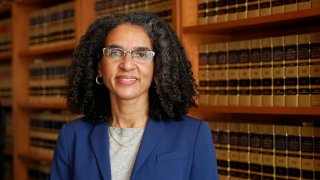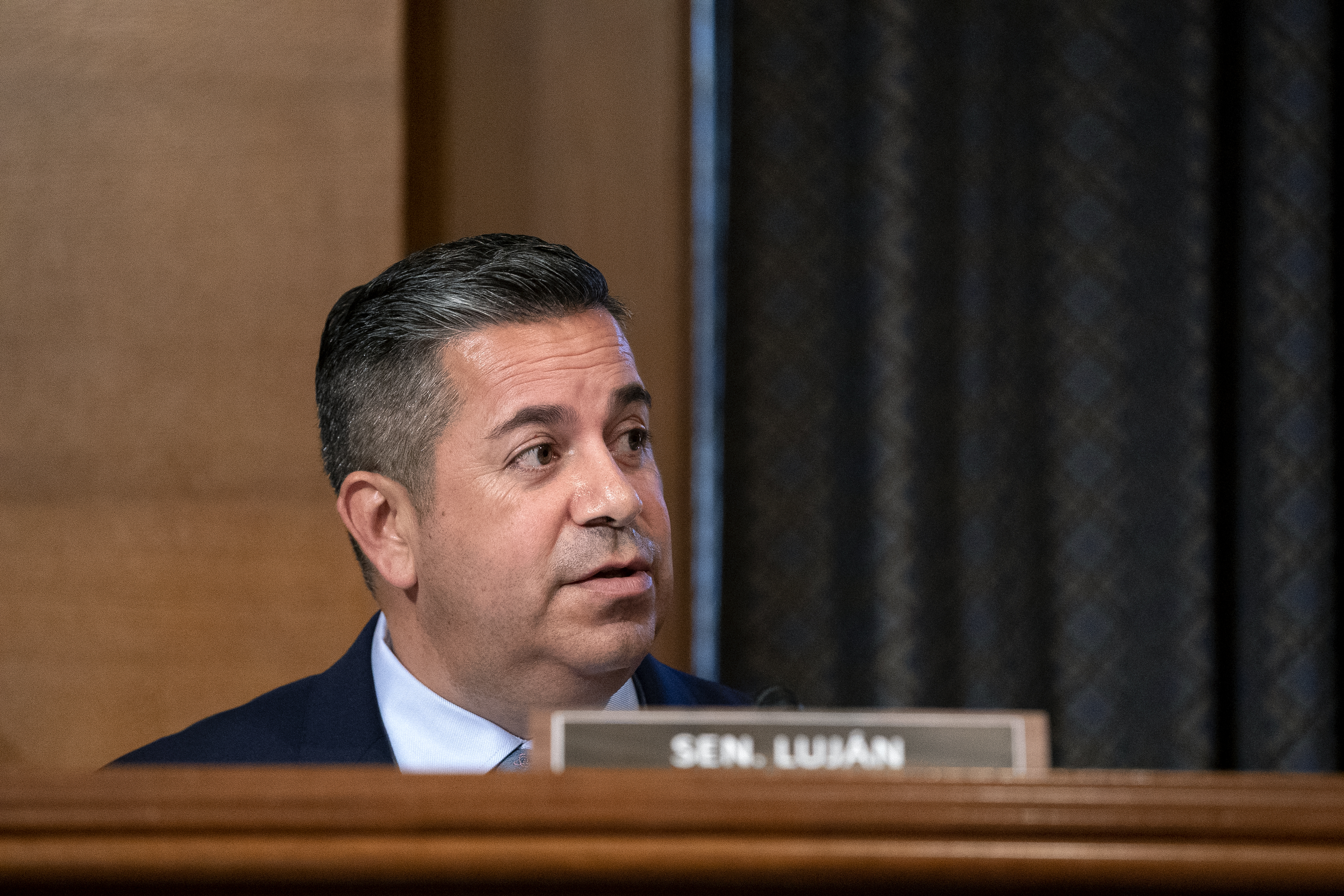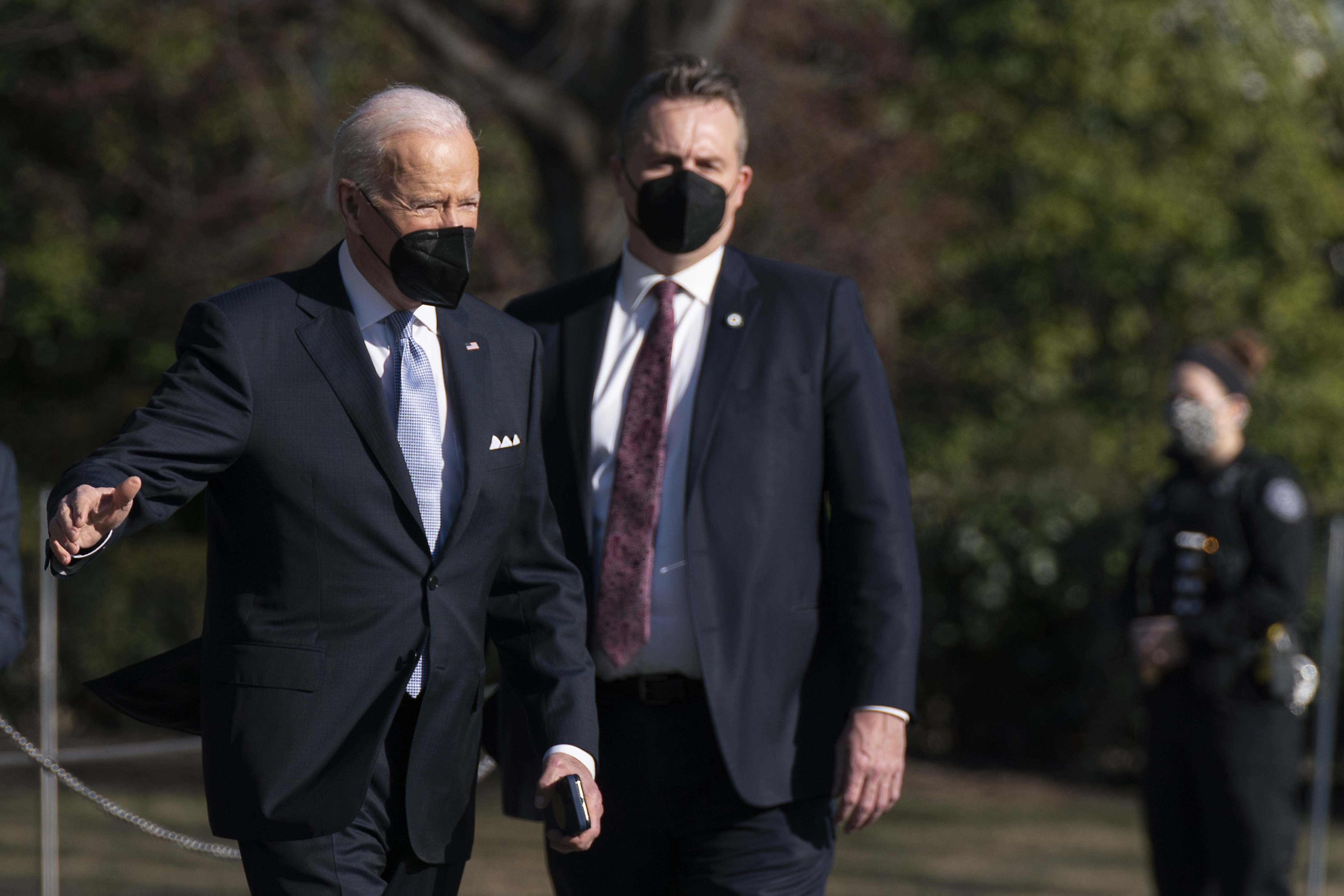
Help wanted: Well-respected liberal jurist. Black. Female. Seniors need not apply.
President Joe Biden's search for a nominee to the Supreme Court isn't just limited by credentials, race and gender. The reality for the nation's oldest president — and for any president — is that for a lifetime appointment on the nation’s highest court, youth is particularly prized.
It's simple math. The younger Biden's nominee, the longer she is likely to serve as a justice. The longer she serves as a justice, the longer liberals can expect to hold a seat on the court now dominated 6-3 by conservatives.
While a nominee's experience and academic and work credentials may be most important in the selection, how long the person can serve is clearly significant for the 79-year-old Biden in what may well be his only chance to nominate a justice.
“Younger is considered better, but not so young that you don't have a track record,” said C. Boyden Gray, White House counsel to former President George H.W. Bush. And the age issue extends to nominating federal judges at all levels, he said.
More Supreme Court Coverage
Age may be most significant at the Supreme Court. It is often said that a president's picks are among his most lasting legacies, with recent justices serving 25 years or more. Retiring Justice Stephen Breyer, nominated by President Bill Clinton at 55, is retiring at 83.
Balancing age and experience, recent presidents have picked nominees in their late 40s and 50s, with 60 generally seen as the very upper end of the range. All three of Biden's most talked-about potential nominees are in that age window, but there's also a decade between the youngest and oldest.
California Supreme Court Justice Leondra Kruger is 45, while South Carolina federal Judge J. Michelle Childs is 55. In between is Washington, D.C., federal appeals court Judge Ketanji Brown Jackson, 51.
On Tuesday the court transparency group Fix the Court tweeted that Republicans are pushing Childs for the seat “in part because she’s the oldest of the potential nominees & more likely to die sooner.” The group then voiced support for 18-year term limits, which would make age less of a factor.
Breyer's fellow Clinton nominee Ruth Bader Ginsburg was nominated at 60 and served until her death in 2020 at 87.
“Some people thought I was too old for the job," Ginsburg said in 2019 at an event with Clinton. Noting that she was starting her 27th year on the court, she told the former president: "If you worried about my age, it was unnecessary."
“I did worry about it,” the Democrat acknowledged, describing age as a “serious issue.”
The concern about a nominee's potential longevity cuts across party lines. In 1991, when Justice Thurgood Marshall announced his retirement at 82, then-President George H.W. Bush said he would look for a nominee who “believes in the Constitution of the United States" and also "somebody who will be able to serve for a while.”
He chose Clarence Thomas, then 43. No nominee since has been younger. Last year, Thomas marked 30 years on the bench. The Supreme Court's youngest-ever nominee was 32-year-old Joseph Story, who joined the court in 1812 and served for more than 30 years.
Former President Donald Trump also picked young nominees. Neil Gorsuch was the youngest in a quarter century when he was nominated at 49. He was followed by Brett Kavanaugh, then 53, and Amy Coney Barrett, then 48. The remaining members of the court — Chief Justice John Roberts, Justice Elena Kagan, Justice Sonia Sotomayor and Justice Samuel Alito — were nominated at 50, 50, 54 and 55 respectively.
Knowing he was facing an uphill confirmation fight in 2016 to replace conservative Justice Antonin Scalia who died unexpectedly, President Barack Obama picked a moderate who was also older. Merrick Garland was 63. Still, Republicans controlling the Senate refused to hold a hearing for Garland, now Biden's attorney general.
For Biden, age may be of particular significance. While Trump appointed three justices, Biden is unlikely to be able to leave the same stamp on the court, even if he runs for and wins a second term. After Breyer, the court's two oldest members — Thomas, 73, and Alito, 71 — are conservatives unlikely to retire during a Democratic administration. The court's remaining liberals, Sotomayor and Kagan, are 67 and 61 and could still serve at least a decade longer or more.
As Biden decides whom to nominate, he'll be weighing multiple factors: candidates' records, Ivy League versus state school educations, prosecutor versus defense attorney backgrounds.
“I think younger ages are definitely a factor, and rightly, but not the only factor,” said Sen. Richard Blumenthal, a Democrat on the Judiciary Committee and one of the senators who have met with Biden about the nomination.
Biden himself has acknowledged the role that age can play. In a 2010 interview as vice president, defending Obama's choice of Kagan, he brushed off criticism that the president had chosen another Harvard graduate and pointed out that she was then the administration's top Supreme Court lawyer.
He described her as “ready, willing, able" and, adding another key quality: ”the right age."
Associated Press writers Mark Sherman and Mary Clare Jalonick contributed to this report.



